How Harrogate's Yorkshire Tea has changed lives in Rwanda with Cricket Builds Hope projects
And the youngsters competing in Kigali's panoramic Gahanga Cricket Stadium do so with the support of a Yorkshire institution.
After years of trading links with the country, Yorkshire Tea has provided roughly £200,000 in funding since 2017 for Cricket Builds Hope (CBH), a charity using the sport to boost the prospects of boys and girls in the east-central African nation.
Advertisement
Hide AdAdvertisement
Hide AdThe Yorkshire Tea Cup, which took place in October, was the culmination of this project - a tournament for youngsters in teams linked to four of the nation’s tea estates: Gisovu, Sorwathe, Nyabihu and Pfunda.
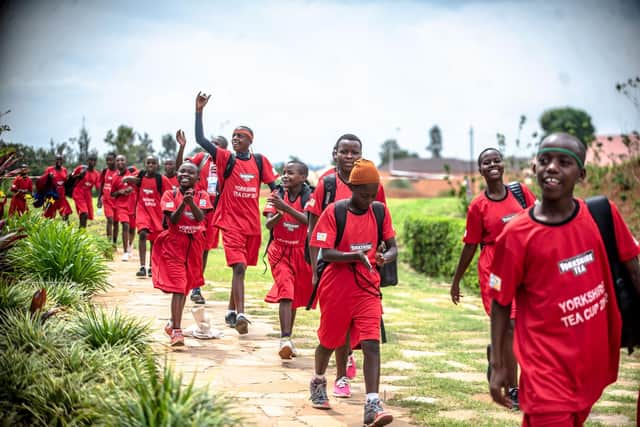

Cricket, though, is a relatively new sport to Rwanda, one brought back by exiles who came home after living in countries such as Kenya, Uganda and Tanzania during the 1994 genocide against the Tutsi.
Now the game is used to empower and unify people in a nation where reconciliation has in recent decades been paramount.
Indeed there is “more to the game than just the bat and the ball,” says Mary Maina, a former captain of the Rwanda women’s national cricket team and previous CBH programme manager.
Advertisement
Hide AdAdvertisement
Hide Ad“The nature of cricket itself, it just has a way of harmonising people,” she tells The Yorkshire Post at Gahanga stadium.
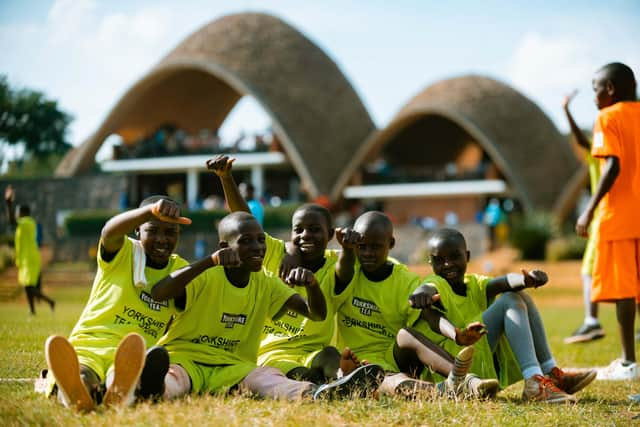

Mary, now in her late 20s, started playing in school and “there was already that community where you feel like it’s a second home,” she says. “That is cricket, at least cricket in Rwanda. It gave me that sense of belonging, and I was like: ‘I do not want to let this go’.”
Former exiles founded the Rwanda Cricket Association (RCA) in 1999 and, four years later, the country became an Affiliate Member of the International Cricket Council.
Rwanda’s President, Paul Kagame, officially opened Gahanga stadium - whose pavilion is in the shape of a bouncing ball and has a bar decorated with the Yorkshire Tea logo - in 2017.
Advertisement
Hide AdAdvertisement
Hide AdThis was in no small part due to Christopher Shale, a British businessman and cricket lover who regularly volunteered in Rwanda. Mr Shale wanted to help the Rwandan cricketers he met and worked towards building the first grass wicket in the country.
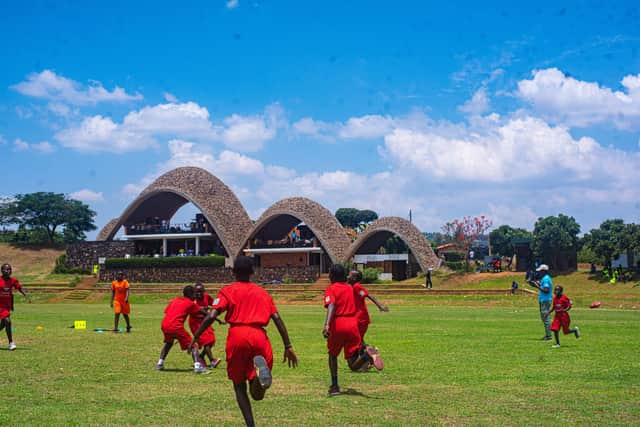

Sadly, he died in 2011, aged 56, before he had a chance to realise his vision but his family and friends set up the charity in his memory. Over six years, CBH (known as the Rwanda Cricket Stadium Foundation until 2017) raised more than £1.25 million to fund the building of Gahanga’s facility.
Mary says that after the construction, CBH’s work could also turn towards creating social change, and they set about economically empowering women in the surrounding area while using the cricket stadium for wider community needs.
Space, for example, has been included on site to enable the Rwanda Biomedical Centre to deliver HIV-testing services free of charge.
Advertisement
Hide AdAdvertisement
Hide AdThe charity has since also focused on getting children into the sport and Will Hammond, who grew up in Cambridge, has worked with Yorkshire Tea on this after joining CBH as director earlier this year - the perfect role for a lifelong cricket fan.
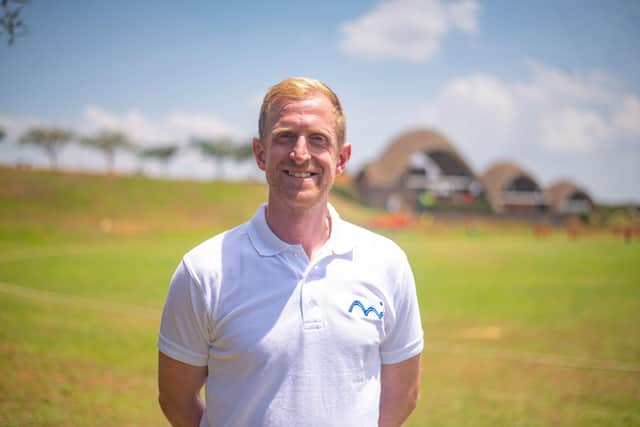

“There are pictures of me on my dad's wall in pads massively too big for me, and me and my brother both playing from age three, four,” he says.
After graduating from the University of Durham he went into consultancy roles in London and social care at Barnet Council before taking a sabbatical just before the pandemic lockdowns, working with the Macheo children’s charity in Kenya.
This “lit something in me”, he says, and he decided on a new career.
Advertisement
Hide AdAdvertisement
Hide AdHis oldest friend, Ed Pearson, was formerly a project director at CBH. In 2018, Will had the chance to fly out and play at Gahanga with the Cambridge to Casablanca Cycling Cricket Club, and was later approached to work at the charity.
“It’s clichéd, but it's just wanting to make a difference,” he says.
Cricket can help, he believes, with the charity’s three main pillars of equality, empowerment and cohesion. Principally, it’s inclusive because - especially as a new sport in Rwanda introduced to both boys and girls - it is appropriate for all genders.
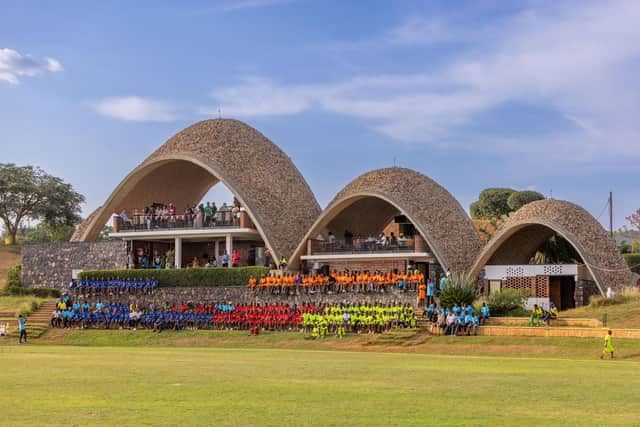

“Then you have the values of cricket - so there's a sense of fair play, there's a sense of having to work hard and have discipline,” says Will.
Advertisement
Hide AdAdvertisement
Hide Ad“You are responsible for your own performance but you also have to play with a team and it makes a big difference having a good team culture, so I think there’s something about that. Fair play, team work. Communication is absolutely massive in cricket.”
He adds that “it’s quite a long game, so you spend quite a lot of time together - it helps to bond teams.” Will has made “friends for life” through the sport, he says.
“It’s before my time, but I think also with the reconciliation needed in Rwanda to rebuild communities after the genocide, that kind of thing is really important and one of our things is about community cohesion, and I think cricket’s really well set up for that.”Yorkshire Tea’s initial donation and subsequent funding has enabled CBH to not only invest in the stadium and equipment but, since February 2019, in coaching programmes. This follows the lead of Rohith Peiris, the director general at Sorwathe Ltd tea factory, a Sri Lankan who forged cricketing links and encouraged young people in the community around his estate in Kinihira to take up the game.
Working with the RCA, CBH has delivered bespoke coaching programmes which not only teach children and estate workers directly but also train staff and teachers to become coaches, ensuring a legacy for Yorkshire Tea’s investments after the project ends.
Advertisement
Hide AdAdvertisement
Hide AdThe hard work of CBH’s development officers was evidenced by the quality of play seen in the U14 and U17 male and female teams competing in the round robin T10 format during the Yorkshire Tea Cup.
Typically, there was a break in session on the first day to let bad weather pass. Nothing could dampen the enthusiasm of these hundreds of youngsters, however - it was merely a chance for them to dance through the downpour.
But the programme is also working to raise the ambitions of the children, many of whom come from poor backgrounds.
“I have a dream of being a doctor,” says Mukandayisenga Esther, 14, who plays for Pfunda.
Advertisement
Hide AdAdvertisement
Hide Ad“When my grandma was about to die, she told me that if I’m not able to save her, I must save others.”
And through cricket, she agrees, she is developing self-confidence to pursue her passions.
Fredy Ndayisenga, 29, from Kigali, started to coach with Pfunda as part of the CBH and Yorkshire Tea programme.
Speaking about the children at the tournament, he says: “They have a great opportunity today. Gahanga stadium. It’s their first time. It’s like a dream coming true to them so it’s like a dream coming true to me.”
Advertisement
Hide AdAdvertisement
Hide AdFredy started playing cricket when he was 17 and went on to represent the national team but believes he missed out on the sort of guidance he gives to the children under his wing.
He speaks about how, during the pandemic, he rented a bigger home where he could more safely teach the children and convinced a local pastor to let them play if it conflicted with choir sessions.
In the case of two “street boys”, as they are called in Rwanda, he says that he got them involved in the sport and persuaded them to get back into school.
“I was working with them the whole day - I didn’t give them the chance to do something which is not necessary in their life,” he says of the children he has taught.
Advertisement
Hide AdAdvertisement
Hide Ad“These are my young brothers, if I don’t take care of them, no one will. So that’s why I do it and whenever I ask their mothers, now they are seeing the change in the kids,” he says.
“Now they are changing, also, their mindset, through cricket.”
Ben Newbury, marketing lead for Yorkshire Tea, has worked for Taylors of Harrogate for more than 12 years. After all the work with CBH, he was overwhelmed with emotion at the end of the tournament and during the concluding awards ceremony told the youngsters that it was one of the best days of his life.
He says that doing business responsibly and with care for the communities they work in has always been part of the company’s ethos.
Advertisement
Hide AdAdvertisement
Hide Ad“We need to make sure that, ultimately, we’ve got a long-term supply of really good quality tea. You don’t get that by just trading and buying, so our belief is that working with them in partnership, building up long-term relationships, establishing programmes that are dedicated to that commitment but also helping to improve the livelihoods of those that work with you, are critical in ensuring that we have longevity.
“Ultimately, it’s just the right thing to do - to make sure that these communities and people are properly rewarded and cared for in a way that they should be.”